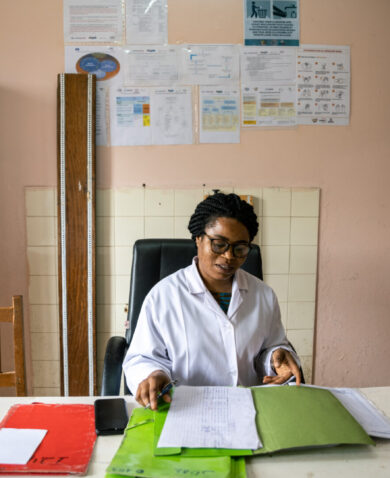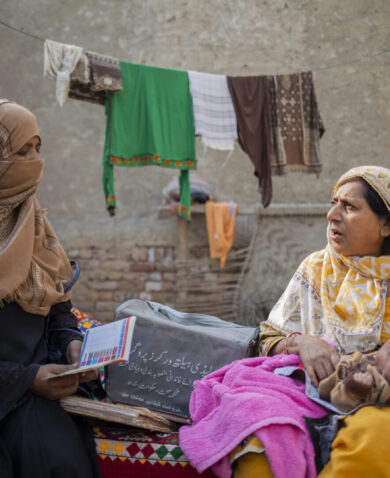
Chemonics News
News: Executive Vice President Presents at Health Partnerships Panel
April 17, 2015 | 2 Minute ReadExecutive Vice President Jamey Butcher joined a panel of global leaders in business and health to discuss opportunities for public-private partnerships in global health security.
Global health security continues to be a top priority for national governments and organizations around the world. As the recent Ebola outbreak reminded many, the increasing interconnectedness of the world requires national health systems everywhere to be resilient and adaptable to new threats. On April 17, Executive Vice President Jamey Butcher joined a panel of leading health experts and decision-makers to discuss the role of public-private partnerships in meeting this challenge.
Organized by the Center for Global Health and Diplomacy in conjunction with the spring meetings of the World Bank and International Monetary Fund, the panel included USAID Assistant Administrator for Global Health Ariel Pablos-Méndez and State Department Deputy Coordinator for the Ebola Response Andrew C. Weber, as well as senior representatives from GE, the Abraaji Group, medical technology company BD, and the Tanzanian government.
The roughly 50 attendees from the public and private sectors heard panelists highlight sustainable health models and public-private partnerships for improving maternal and child health, and combatting non-communicable and infectious diseases, and then participated in a larger discussion.
Drawing on Chemonics’ experience in systems strengthening and cross-sectoral programming worldwide, Mr. Butcher shared four models that Chemonics uses to promote sustainable solutions. “We are mobilizers of resources,” he said. “We focus on bringing together the right local resources and professionals.” In addition, he highlighted the importance of lowering barriers to private sector investment and new technology, saying, “We must scale new technologies in a way that is driven by the private sector.”
To maximize its health impact, Chemonics takes an integrated, multi-sectoral approach to strengthening health systems. We work with national and local governments, local NGOs, and the private sector. With the ultimate goal of making sustainable improvements to the health sector, we focus on building in-country leadership capacity, strengthening organizations, and promoting policies and innovative financing solutions that enable the health sector to meet the needs of its clients.
















